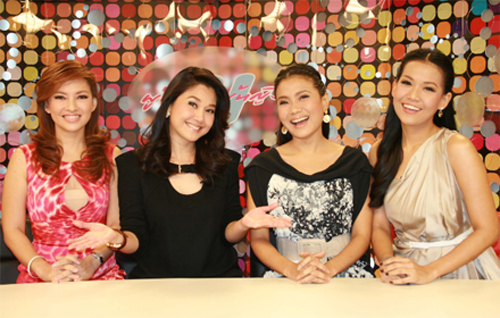Sawatdii kâ,
Thai language has a lot of polite particles. Today I would like to talk about the polite particle “jâ” (falling tone) จ้ะ.
“jâ” used by adult male&femail speakers at the end of a statement when speaking to children and people of inferior status; between males and females denotes anything from easy familiarity to ‘sweet talk’;
between females signals ‘best freinds talk’;
used as a response when one’s name is called;
used in isolation as a ‘yes‘ response;
used to reassure speaker of one’s attention (jâa) when the vowel is normally lengthened ;
used after mâi to mean ‘no’.
I normally use the particle jâ with my friends both female and male, with my younger sister and brother as well as with younger people such as my little brother’s girlfriend. It sounds friendly and informal.
Kop Kun jâ🙂
ขอบคุณจ้ะ
Mod

This lady thought I said sawadee jâ and she thought I was a local, I ended up correcting her that I wasn’t. So does that actually something’s local would say to another local? I’m this case I was getting a massage.
Someone told me that “jaa” may also express intimacy. Is it accurate?
สวัสดีครับ Mod,
So “ลัะ” is used just for female speaker, right?
Should it sound strange if a male uses the particle จ้ะ?
Sawadee krup Kru Mod. So among colleagues of the same Status it is okay to use “ja” ?
Sawatdii ka Hubert, yes you can use “ja” with colleagues of the same status but only when talking to a female. Male don’t use “ja” among themselves.
Sawatdii Krap Mod for this blog..
I’m planning to go there by May of this year hopefully for good.
Too much thanks, Kru Mod.
Very Useful information
Sawatdii krap
Sawatdii ka Kun Ahmed,
Thank you for reading my blog. Kop Kun Ka:)
Mod, thank you for this blog and resources 😉
I have heard Kop Jai ja before (or think I have) is that combined the particle just a friendlier informal way to say thank you?
Sawatdii ka Kun Chris,
Thank you for reading my blog.
yes, when you put ‘ja’ at the end it makes the statement sounds friendlier than without.